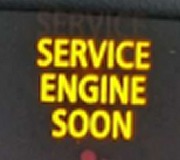Tuesday, July 24th, 2012 AT 4:11 AM
Runs fine when the weather is cool or just warm. Lately it has been around 100 degrees where I live. When I drive the car to the point where it's fully warmed up, and then shut it off for a few minutes, it will run very rough on start up until I clear it out with the throttle. If I open the hood and let the heat dissipate for a few minutes, then all is fine. Obviously my problem is heat related, since it doesn't do this on days where it's 75 degrees or less. It's acting like it has some type of vapor lock. Today it was around 100 degrees out, and for the first time it did this while it was running. I let it idle for about 10 minutes while I loaded things in the back. It started to shake, rattle and roll, and it was blowing blue smoke out the back. After I got in it and cleared the engine (drove it a few blocks), it was running fine again. Any ideas?




